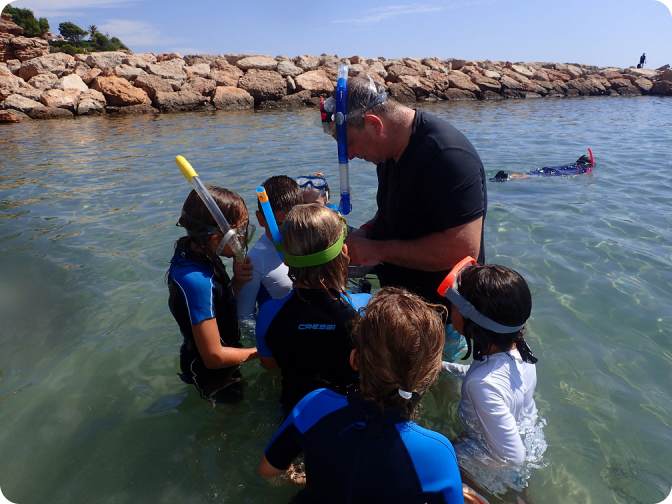ProBleu aims to boost Ocean and Water Literacy beyond the classroom by supporting the Network of European Blue Schools (NEBS) and connecting schools with key scientific disciplines for sustainable and equitable exploitation of ocean and water resources.
ProBleu’s heart lies within the European Union’s “Restore our Oceans and Waters” Mission, which focuses on revitalising aquatic ecosystems, including seas, oceans, and freshwater bodies, through research, innovation, and active citizen involvement. In particular, ProBleu aligns with the Mission’s goals to preserve marine and freshwater ecosystems, combat pollution, and protect biodiversity.
ProBleu sets itself apart by advocating for Open Schooling approaches, encouraging schools to engage more extensively with their communities. Environmental education must be reshaped to foster a broader societal commitment to oceans and waters and drive behavioural changes. ProBleu seeks to strengthen the connection between individuals and their local marine or freshwater environments to achieve this.










